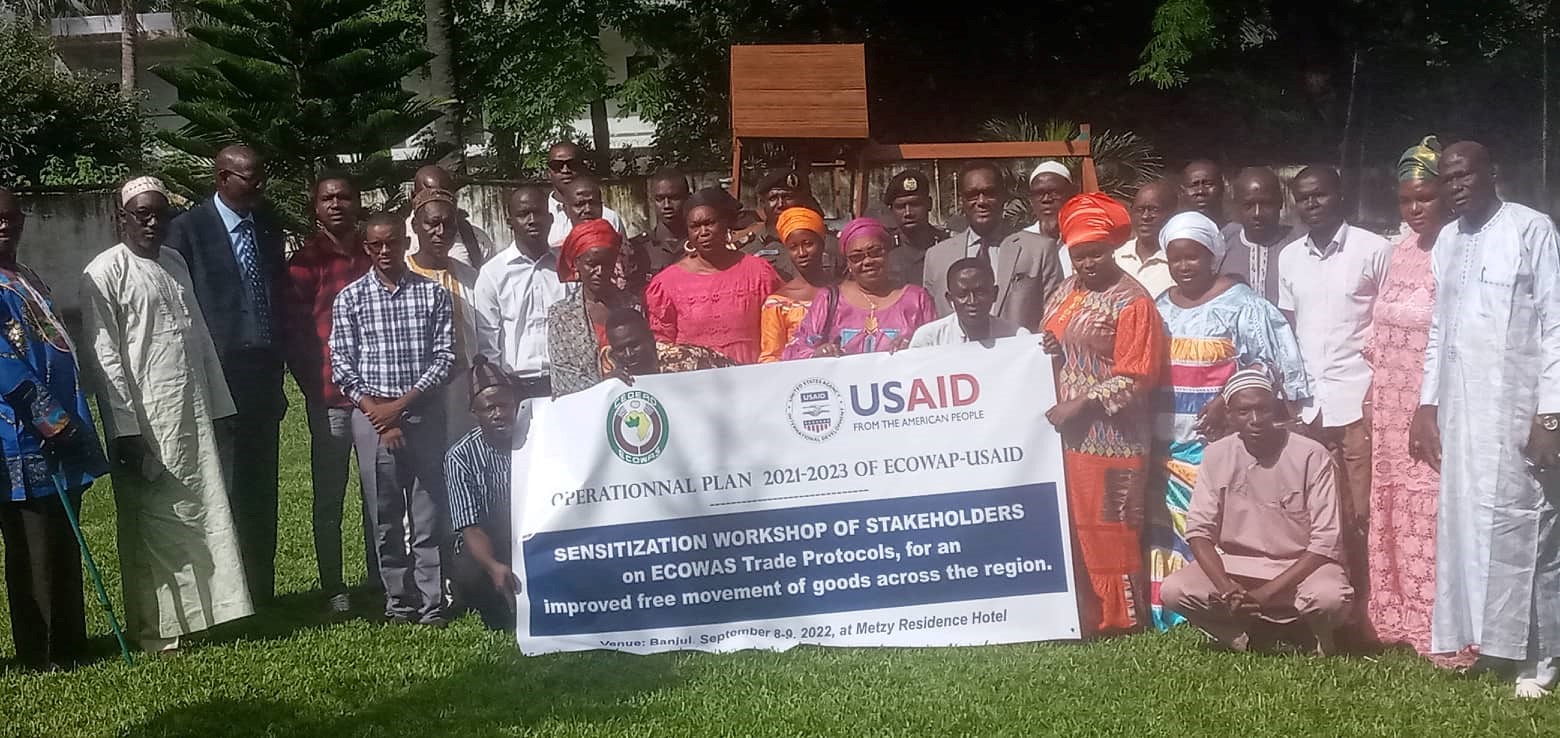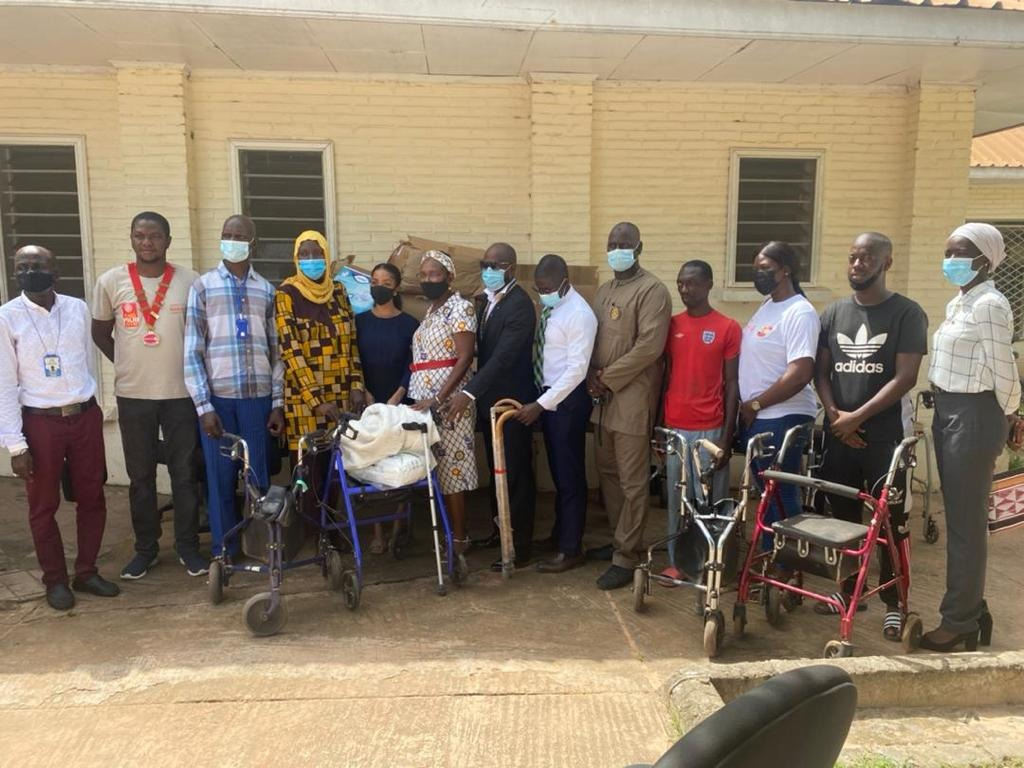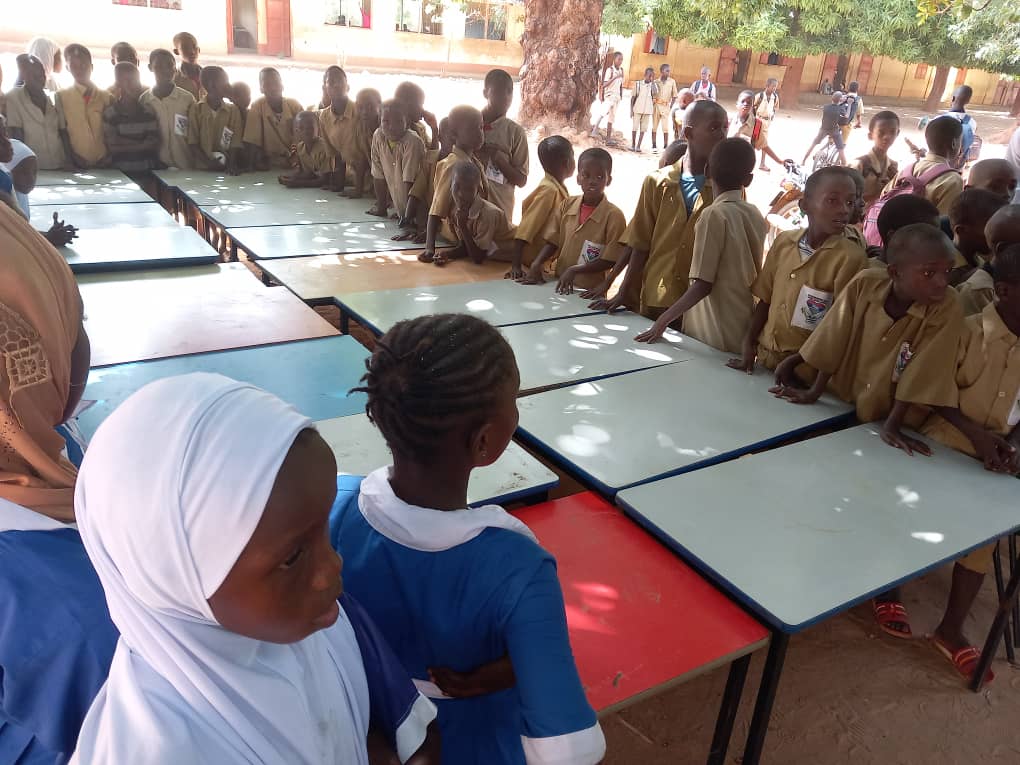By Kebba Ansu Manneh
Justin Bayili, Principal Trade Adviser for ECOWAP-USAID Project has affirmed that the failure of some member states to enforce the various protocols adopted by ECOWAS Heads of State remains the biggest challenge to the free movement of goods and people in the region. He, therefore, advised the establishment of a common customs union to address these challenges confronting the ECOWAS sub-region.
The Principal Trade Adviser to the joint ECOWAP-USAID made these disclosures at the sidelines of a regional sensitisation workshop of stakeholders on ECOWAS Trade protocols, for an improved movement of goods across the region. The event has taken place in Banjul on 8th September 2022.
“In the region, we have recorded more than fifty (50) regulations on trade and transport but unfortunately, once the regulations are adopted by the heads of states some of our administrations are not unable to enforce these regulations. The failure of these countries’ administrations to enforce these regulations that will allow the free movement of goods and people is what is affecting trade within the region,” ECOWAP-USAID Principal Trade Adviser observed.
He added: “We think that once we are convinced that there is a need to work towards a customs union, is one regional integration area that will work full to implement some of the regulations that can lead us to the free movement of goods and people. This is why we are doing this sensitisation workshop that is key to unlocking the understanding of stakeholders in the sub-region about the way forward.”
According to him, the sensitisation workshop will help participants to know the different trade regulations existing in the region. He quickly disclosed that participants were drawn from Customs and Excise, police, clearing agents, and e-farmers among other stakeholders.
Dr. Amadou Tall, representative of the ECOWAS Commission disclosed that irrespective of the challenging trade barriers, the sub-region is ahead of the others as far as free movement of goods and people is concerned. He noted that the confab will equip the participants to be more prepared and abreast with the different existing protocols that can be exploited to add value to trading within the sub-region.
Dr. Tall continued to highlight key challenges including the amount of time spent at borders to get clearance, costs incurred by traders, and external tariffs under ECOWAS customs regulations among others. Furthermore, the sensitisation workshop will augment the understanding of the various stakeholders regarding the existing trade protocols and regulations with the view to expand on the gains of trading within the member states.
Anna Menga Cham, Director of Fisheries also cited the importance of the forum that is designed to expose Gambian stakeholders to the various ECOWAS trade protocols and regulations. She said it is important for stakeholders to know and understand how to benefit from duty waivers and other incentives readily available that can in turn help them to gain more profits in their trading.
Madam Menga Cham also used the occasion to encourage Gambian entrepreneurs to be innovative and add value to their products if they are to hit the global market. She said the Gambia did not lack quality products that can be well packaged and branded as made in the Gambia as a means to gain from not only the European and American markets but equally from the Subregion.
The Fisheries Director also called on the attention of Gambian businesswomen to grab the opportunities for the free movement of goods and people. She noted that many businessmen struggle to market their goods and services to Europe and America when they can trade within the subregion with ease and more profits.
She later advised the participants to take the training seriously, while urging them to disseminate the knowledge and skills learned widely to their colleagues.




